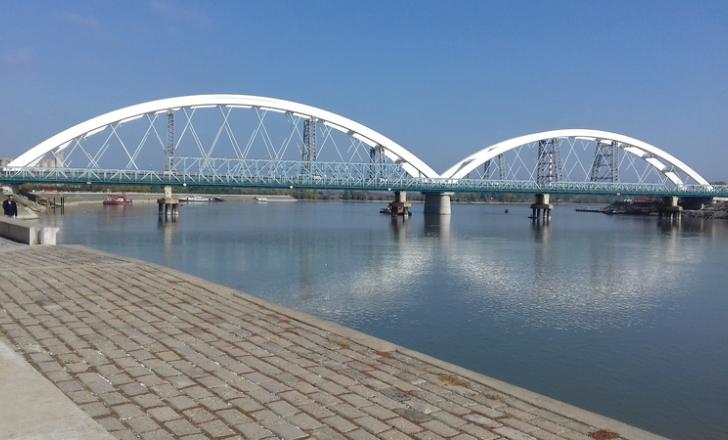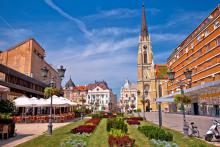
The new Bridge of Brotherhood and Unity, also known as Zezelj’s Bridge, across the Danube River in Novi Sad, Serbia, is officially open.
The road and rail tied-arch bridge replaces the original bridge of the same name that was built in 1961, named after the designer Branko Zezelj.
The designer of the new bridge is Aleksandar Bojović and the contractor was an international consortium of Azvi, Taddei and Horta Coslada. One of the two arches is 177m long and 34m high and the other is 219m long and 42m high. It has two rail tracks and two vehicle lanes.
It was destroyed during the 1999 bombing of Yugoslavia, of which Serbia was a part, by NATO – North Atlantic Treaty Organisation – forces.
NATO bombing also destroyed the Varadin Bridge and Liberty Bridge.
Serbian president Aleksandar Vucic and European Union commissioner for enlargement negotiations Johannes Hahn attended the opening ceremony for the new bridge. Serbia is a candidate for membership of the EU.
Hahn said the €54 million new bridge - 474m long and 31.45m wide - is a symbol of Serbia’s European integration and the country’s efforts to build bridges “between citizens, people, the past and the future.” One of the pillars from the old bridge, that was 377m long, is supporting part of the new structure was reused to support the new steel structure.
The EU allocated €25 million, Serbia’s province of Vojvodina and the city of Novi Sad allocated €25 million, while the state allocated the remaining €4 million.
The new bridge is part of the European railway Corridor 10 and will carry the future Belgrade-Budapest high-speed railway.





